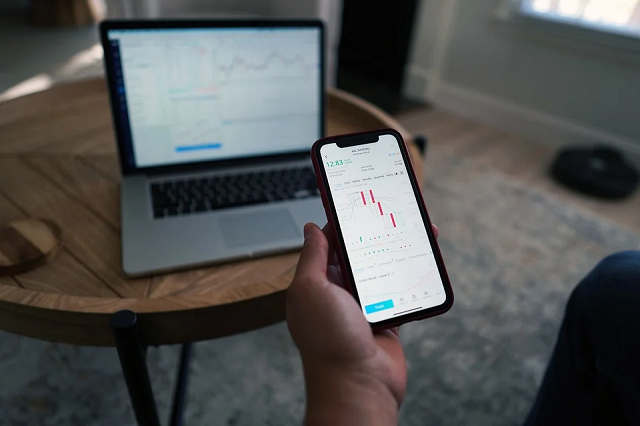Retail Trading ready for Fintech Distribution

By Contributing Author
Fintech startups are mushrooming globally, transforming the lending and retail banking sector. Today, Fintech research shows more than 8000 Fintech startups with 10 percent venture in the capital market and the rest in retail trading. The startups receive small amounts of funds (4 percent out of $96 billion) of the capital funding. However, the retail trading sector is growing fast and incorporating many financial industries such as stock trading. Currently, the many eToro reviews online show the large impact of Fintech and trading platforms.
Fintech has revolutionized and increased financial knowledge both to consumers and corporations. The introduction of big data and visualization tools are assisting users in monitoring and access services online. The consumer can easily access data and trends using AI and machine learning tools. They can also operate and manage their wealth using online platforms. The online services help consumers source trading strategies. They can get potential trading opportunities and trade at a low cost, thus getting more benefits.
The fintech technology allows consumers and businesses to use third-party platforms to monitor their funds. The technology leaves traditional banks at a disadvantage as many consumers prefer managing their account details. Third-party financial services have the upper hand in the banking and trading sector.
Potential Fintechs to watch
There are several Fintech services with incredible potential. They provide a good experience and interface to help in trading tools.
- Robo-advisors 1.0
Robo-advisors depend on user-friendly platforms to provide better services and experience. It mainly attracts users who don’t have proper knowledge of capital market trading. They assist by providing low cost using algorithm-based advice. The firm scope low to zero cost brokerage fee and profits.
- Robo-advisors 2.0
The firm relies on advanced trading strategies and analytics like alpha generation or smart beta strategies, algorithmic strategies, and analytic capabilities. The Robo-advisors 2.0 are better than Robo-advisors 1.0, as they charge a higher management fee.
- Robo-advisors-as-a-service
These types of Fintech firms offer white-labeled solutions to all financial institutions. The institutions are integrated to work as extensions of other CRM tools.
- Market intelligence
The market intelligence is designed to help traders share trading strategies and algorithms. The firm is termed as a social platform for traders to uncover trading opportunities. There are examples of market intelligence firms such as Call levels and AlgoMerchants. The firms assist users, or trades get trading opportunities through technical and fundamental analysis.
- Portfolio analytics and monitoring
All fintech startups in this sector offer better and advanced analytics and monitoring (B2B2C) to retail traders.
Retail Fintech and the world today
Fintech retail is increasing and operates through various dimensions in the retail investment field. Some firms are stable and offer advanced trading services. Other firms use on providing user experience and work in partnership with financial institutions such as banks. Regulatory barriers affect man Fintech firms globally. However, partnership with the larger financial institutions (banks) helps surpass the obstacles and open new opportunities.
Fintech has provided access to many technologies; users can venture into different fields. It’s like many users will prefer Robo-advisors to operate and manage their wealth. Trading is much easier due to digital platforms, which guide on the market trends.
Potential risks of Fintech startups
Fintech startups face several potential risks which affect the financial sectors.
- Cyber risk
Cybercrime is a potential risk where fraudsters interfere with bank and Fintech systems. They tamper with crucial data disrupting bank or financial operations.
- Credit risk management
Banks and financial institutes believe borrowers will refund or repay their debts. However, they lack information and credit risk modeling tools. Fintech firms are using advanced technology and social media. To learn user’s spending history and data while lending money to consumers.



